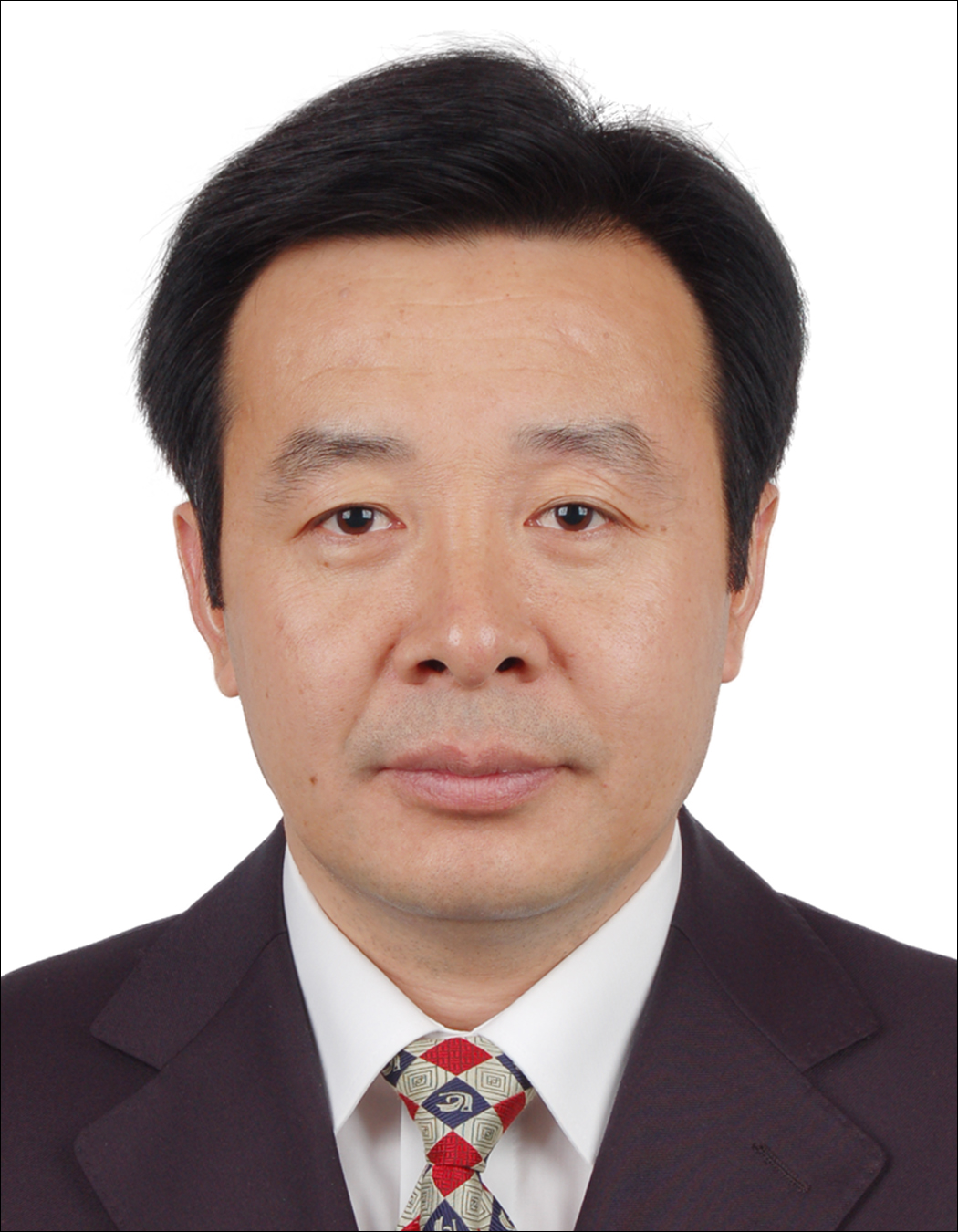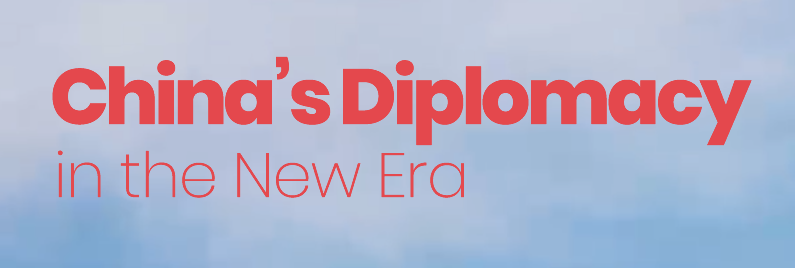On 18 April 2018, the Lesotho Times Published the Article Belt and Road Cooperation: Advancing China-Lesotho Cooperation with New Impetus by Mr. Song Changqing, Charge d'Affairs ad interim of the Embassy of the People's Republic of China in the Kingdom of lesotho, full texts of which are as follows:
Belt and Road Cooperation:
Advancing China-Lesotho Cooperation with New Impetus
By Song Changqing,
Charge d' Affairs ad interim of Embassy of the People's Republic of China
18 April 2019
The upcoming Second Belt and Road Forum for International Cooperation (BRF) will be held next week in Beijing. With the theme of Belt and Road Cooperation: Shaping a Brighter Shared Future, all parties of the Forum will take stock of what has been achieved and draw a blueprint for future cooperation to enrich Belt and Road Cooperation.
The Chinese President H. E. Mr. Xi Jinping first introduced the Belt and Road Initiative (BRI) in 2013, which calls for rejuvenating the two ancient economic belts, namely the Land-based Silk Road linking China with Europe via Middle and Western Asia as well as the Maritime Silk Road linking China with Africa via Southern Asia and the Indian Ocean, by improving infrastructure connectivity, trade facilitation, policy coordination and people-to-people exchanges among the regions. Principled by extensive consultation, joint contribution and shared benefits, the BRI upholds the multilateral trade system, and provides an important platform for building a community with a shared future for mankind and forging a new type of international relations. In May 2017, the First BRF held in China delivered fruitful outcomes.
Up until now, a total of 125 countries and 29 international organizations have signed BRI cooperation documents with China. Meanwhile, the BRI vision has been included in documents of major international institutions including the United Nations, the G20, the Asia-Pacific Economic Cooperation and the Shanghai Cooperation Organization. Looking back at the pursuit over the last few years, it can be witnessed that the BRI has played positive roles in the global development:
First, the BRI has opened a new area for international cooperation and boosted confidence in it.
The world today is experiencing profound changes unprecedented in a century. Protectionism and unilateralism are rising, so are uncertainties and destabilizing factors. As stressed by President Xi, the BRI is a significant move China has taken to fully open itself under the new conditions, and it embodies China's commitment to sharing development opportunities and outcomes with more countries in the world. This important statement charts the course for Belt and Road cooperation.
The BRI represents an approach to international cooperation featuring mutual respect, justice, equity and cooperation for win-win outcomes. And it is a commitment to multilateralism and an open global economy. As such, the BRI will help move economic globalization toward greater openness, inclusiveness, balance and win-win outcomes.
Second, the BRI has created new impetus and potentials for global growth.
Since the outbreak of the international financial crisis in 2008, to create both new growth drivers and a new cycle of global growth has become a common task for the international community. The BRI aims to address the fundamental issue of promoting development by enhancing all-round connectivity as well as helping countries involved to remove development bottlenecks and implement the UN 2030 Agenda for Sustainable Development. This initiative has thus become an important way for boosting global growth.
The latest studies by the World Bank and other international institutions suggest that the BRI cooperation will cut the costs of global trade by 1.1% to 2.2% and enlarge the volumes of the imports and exports among its regional countries by 2.5% to 4.1%. What is more, it will contribute at least 0.1% of global growth in 2019.
Third, the BRI provides a new platform and new opportunities for fostering closer ties between countries.
By improving connectivity between countries, BRI cooperation has strengthened economic ties and people-to-people exchanges between them, thus binding them closer together with shared interests. This will naturally build extensive consensus, enhance cooperation, and ultimately promote development for all.
As President Xi Jinping pointed out, the BRI aims to replace estrangement with exchanges between different civilizations, replace clashes with mutual learning and replace a sense of superiority with coexistence; and it aims to boost mutual understanding, mutual respect and mutual trust among different countries. So the BRI is a sure path toward peace and cooperation for win-win outcomes.
Africa, as a natural extension along the Maritime Silk Road historically and geographically, is a major partner of China's westward BRI cooperation. The BRI will create unprecedented new opportunities for the China-Africa Cooperation. So far, 37 African countries and the African Union Commission have signed agreements on BRI cooperation with China, making Africa the continent accommodating the largest number of countries involved in BRI. As a new headwater for China-Africa cooperation, the BRI has created more development resources and bigger cooperation potentials for both sides. With the dynamic of implementing the Ten Cooperation Plans and the Eight Major Initiatives on China-Africa Cooperation, both sides have forged ahead the BRI in the following prioritized fields.
First is Infrastructure Connectivity. The lack of infrastructure is a major bottleneck of development. No roads, no economic growth, as is one of the experiences that China has learned in the course of Reform and Opening up, and wishes to share with Africa by assisting its infrastructure development. Up until now, China has helped Africa to construct more than 10,000 km roads, 6,000 km railways, 20 airport terminals, 30 bridges and seaports and 80 power related projects. Among the above, the Mombasa-Nairobi Standard Gauge Railway has created 46,000 jobs for Kenya during the construction, reduced the transportation cost by 40% and increased Kenya's GDP by 1.5%. The construction of NO.1 National Road project in the Republic of Congo has benefited two thirds of its total population by facilitating their travel and trade, and is therefore called A Road of Dreams.
Second is Trade facilitation. China has built at least 25 economic zones in Africa which created 41,000 jobs for the local community. China is committed to promote the manufacturing and industry capacities of Africa through trade facilitation. Both the China International Import Expo and the upcoming China-Africa Economic and Trade Expo provide great opportunities for African products to explore China's massive market. Last year the China-Africa total trade volume reached 204 billion USD, registering 20% growth over the previous year and fastest growth among all China's trade partners. What is more, Africa's exports to China last year achieved 30% growth, suggesting that China-Africa trade is getting increasingly balanced and diversified. China has indeed become the fastest growing export market and the largest trade partner of Africa.
Third is People-to-people Exchanges. China attaches great importance to helping African countries improve the people's livelihood. Over the past few decades, China has built in Africa more than 300 schools and hospitals, dispatched 20,000 medical staff and treated over 200 million patients. Meanwhile, there is a great potential for China-Africa tourism cooperation. Last year over 1 million Chinese tourists visited Africa. There is no doubt that Africa's abundant tourism resources will attract more Chinese tourists.
Though separated by vast oceans and different in national conditions, China and Lesotho are nevertheless good friends, brothers and partners enjoying a relationship featuring amity, equality, mutual benefit and win-win cooperation. Last year, the Right Honourable Prime Minister Dr. Motsoahae Thomas Thabane attended the Beijing Summit of the Forum on China-Africa Cooperation (FOCAC) and paid an official visit to China. Dr. Thabane spoke highly of China's policy of forging a synergy between BRI and the development strategies of African countries, and expressed strong confidence that the BRI will inject more momentum for the development of Lesotho and other African countries.
Over the past years, quite a number of new practical cooperation projects promoting infrastructure connectivity and people's welfare were being implemented in Lesotho. Just to mention a few, the Mpiti-Sehlabathebe road project started earlier this year, will remarkably boost the tourism industry of the region by connecting the Sehlabathebe National Park, Lesotho's only World Heritage Site with the national road network. The Maseru District Hospital and Eye Clinic project will provide better medical services to Basotho and also reduce significantly the medical costs. Other projects include the Mafeteng Solar Power Station, the Maseru Fire Station and Agricultural Products Trade and Logistic Centre will also play important roles in promoting infrastructure, economic growth and people's living conditions.
Over the recent years, the China-Lesotho capacity building cooperation and the people-to-people exchanges are also growing from strength to strength. The various training programs and government scholarships provided by China has helped Lesotho to nurture talents needed for national construction, and strengthen its capacity of independent and sustainable development. Through art troupe visits, Chinese movie festivals and the Confucius Classroom, the people-to-people and cultural exchanges are increasingly broadened, and the friendship between China and Lesotho peoples is further cemented.
At the invitation of the Chinese side, Hon. Maliehe Prince Maliehe, the Minister of Public Works and Transport will attend on behalf of the Government of Lesotho the second BRF in Beijing, and discuss with other parties on BRI cooperation between China, Lesotho and other African countries. We are confident that through extensive discussions and with concerted efforts from both sides of China and Lesotho, the BRI cooperation is surely to create new impetus for the development of China-Lesotho relationship by pushing forward the practical cooperation for more outcomes and bringing more tangible benefits for the people of Lesotho.











